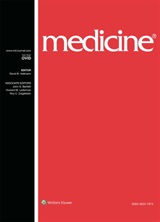![]() This is officially becoming a trend: Springer is pulling another 64 articles from 10 journals after finding evidence of faked peer reviews, bringing the total number of retractions from the phenomenon north of 230.
This is officially becoming a trend: Springer is pulling another 64 articles from 10 journals after finding evidence of faked peer reviews, bringing the total number of retractions from the phenomenon north of 230.
Given that there have been about 1,500 papers retracted overall since 2012, when we first reported on the phenomenon, faked reviews have been responsible for about 15% of all retractions in the past three years.
This isn’t the first time Springer has faced the issue. As owner of the BioMed Central journals, it issued 43 retractions for faked reviews earlier this year.
In a statement, the publisher explains how the latest round of retractions came to light: Continue reading 64 more papers retracted for fake reviews, this time from Springer journals







